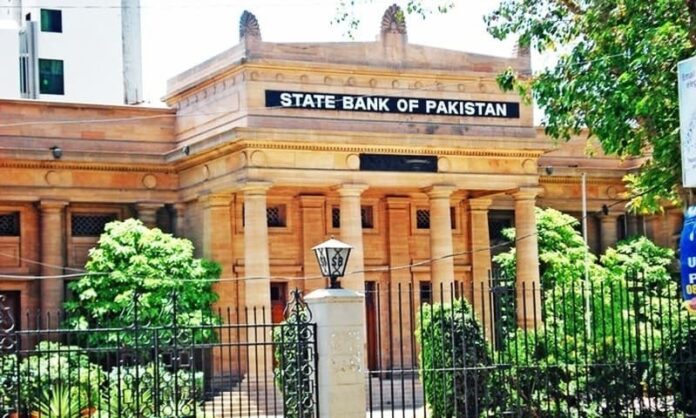KARACHI: State Bank of Pakistan (SBP) Governor Reza Baqir met with the directors of the Employers Federation of Pakistan (EFP) to discuss the new SBP refinance scheme for wages and salaries, according to a statement released by EFP on Wednesday.
The 75-minute video conference was held by the EFP to provide suggestions and seek clarification from the SBP on the scheme.
On April 10, the SBP introduced a temporary scheme for businesses to get loans from banks, to incentivise them to not layoff their workers during the COVID-19 pandemic. The scheme will provide financing for wages and salaries expenses for three months from April to June 2020, for those businesses which do not layoff their employees for those three months
“SBP is constantly engaged with bankers to ensure that the initiatives undertaken by SBP are implemented on fast track basis in order to achieve the objectives,” said Baqir.
Present at the talk were EFP President Majyd Aziz, Vice President Zaki Ahmed Khan and EFP Economic Council Chairman Ismail Suttar. Baqir was assisted by Deputy Governor Jameel Ahmed and Executive Directors Syed Samar Hasnain and Inayat Hussain.
The SBP stated that suitable safeguards have been incorporated in the scheme to avoid its misuse. These include direct deposit of wages and salaries into worker’s accounts, payment through employers to workers (if the employers provide complete information to the lending banks), and priority to those employers whose payroll amount is up to Rs200 million for three months. Active taxpayers would get a discount of 1pc in the mark-up rates as an incentive.
On EFP’s proposal of having a 2pc discount rate for active taxpayers, the SBP said rates under the scheme are already very low. However, on the issue of a further differentiated rate for the tax payers, they did not rule out the possibility of this being discussed in SBP.
The SBP governor also informed that a one-year deferment on payment of principal has already been provided to borrowers. Over 70,000 have availed this benefit and the corresponding principal amount is in excess of Rs5 billion.
Employers could obtain loans through both conventional banks or through Islamic banks, as the scheme is available to both types of banks, according to Deputy Governor Jameel Ahmed and Executive Directors Syed Samar Hasnain and Dr Inayat Hussain. The condition of collateral would vary from bank to bank and their relationship with the borrowers, which has been left for the banks to decide in each case on its own merit.
The team also said that the SBP is determined to minimising the cost of borrowing in the larger interest of the borrowers, and if needed, would enhance bank limits. They reiterated that SBP has declared a deferral of loan payments for one year. Under the scheme, financial sector institutions have been specifically excluded, as the emphasis is to provide loans to labour intensive industries.
The EFP suggested a proposal for some kind of credit guarantee, by a third party, such as the government. The SBP said it could be discussed with banks as well as with the government as this would go a long way in facilitating SMEs.
The EFP also suggested a Non-Disclosure Agreement by banks that the workers’ data would not be shared by banks with third party private or government institutions, in order to maintain confidentiality. The SBP said it would discuss the issue of non-disclosure of data with banks.
The EFP asked about the collateral for loans, especially if the employer is unable to provide further collateral. In response, the SBP said there is already a provision in place in SMEs Prudential Regulations that small enterprises could obtain loans up to Rs5 million without collateral. The central bank also said that principal employers could provide corporate guarantee for their vendors in case the vendors have difficulty in getting loans under the Scheme.
The federation also asked the lending banks to directly route the wages payments through mobile wallets to workers, if the employers could provide names and CNIC numbers to the bank. The SBP agreed with this suggestion, as it would be a workable alternative as it would ensure direct payment to workers and would also be transparent and not misused.





It’s a request to SBP .. I hope you will forward this to SBG .Govt servants and Corporation employees after retirement at the age of 60 are entitled to pension. In addition they can invest additional 5 million each in Behbud and Pensioners Benefit schemes. In comparison private sector retired individual or ordinary citizen over sixty (senior citizens) can only invest up to PKR 5 million in Behbud Scheme. This is unfair considering that they pay more taxes during service and are not entitled to medical services or pension etc . In order to give incentive to non pensioner senior citizen the limit in Behbud Scheme should be increased to PKR 10.5 million. The net incentive in comparison to Special Certificate would be less than 2% ..